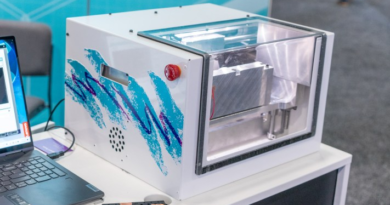Exostellar raises $15M to help companies optimize their cloud spend
Public cloud services spending is projected to reach $1.1 trillion by 2026, up from $531.7 billion this year, according to IDC. But as the use of cloud services expands, organizations are having a tougher time keeping track of exactly how much they’re spending on compute.
Statista reports that around 82% of companies find managing cloud spend to be a “significant” challenge today. Self-estimated wasted cloud spend sits at 28% for this year, per Flexera — down from 32% a year ago. Yet the need to optimize costs and minimize waste continues, particularly with the growing appetite for compute-heavy tech like AI.
The cloud management dilemma has given rise to a new category of startups building solutions to keep tabs on — and optimize — compute spending. Underlining the demand for such solutions, one spend-optimizing startup, Exostellar, today closed a $15 million Series A round led by Celesta and Cambium Capital with participation from Alpha Intelligence Capital.
Tony Shakib, who was recently appointed CEO of Exostellar, said that the new tranche values the company at $40 million.
“The broader slowdown in tech has provided an even bigger opportunity for Exostellar technology, since companies are focused on reducing cloud infrastructure costs,” Shakib told TechCrunch in an email interview. “As a result, the company is in a great position to take advantage of trends.”
Ithaca, New York-based Exostellar, formerly Exotanium, was launched in 2018 by Cornell computer science faculty members Hakim Weatherspoon and Robbert van Renesse along with their former PhD researcher Zhiming Shen, now Exostellar’s CTO.
Exostellar’s software attempts to dynamically allocate and, in real time, move workloads between the cheapest cloud infrastructure. Application-agnostic, the software is designed to work in tandem with other popular resource management tools, like Slurm.
At a high level, Exotanium’s software watches variables like the current spot instance pricing for a given cloud provider — only AWS for now — to predict when the provider might shut down an instance. (Spot pricing provides a discount on compute in exchange for the risk of that compute being reallocated to another customer as general demand increases.) When it seems like a shutdown of a spot instance is imminent, Exotanium temporarily moves the workload to a more expensive, standard-rate cloud instance.
Exotanium’s software also attempts to consolidate instances into the minimum viable number, automatically adjusting the size and power of the instances to work with current workload.
“Exostellar’s technology significantly reduces the time to market for its customers by increasing their cloud infrastructure utilization without increasing their cloud spend,” Shakib said. “By eliminating the trade-off between on-demand, reserved and spot instance pricing, Exostellar empowers organizations to get cheapest cloud pricing without long-term financial commitments.”
Exostellar isn’t short of competition in the cloud spend management market, also known as FinOps, which is set to grow from just under $1 billion this year to $2.75 billion by 2028, according to a recent analysis.
Shakib listed a few vendors he sees as rivals: NetApp-owned Spot.io, Cast AI, VMware’s CloudHealth, Apptio, nOps and Zesty. Zesty recently landed $75 million for its tech that taps AI to automatically adjust cloud storage and compute to save on costs, while Cast AI secured $20 million to grow and further develop its cloud-usage-optimizing platform.
To stay a step ahead, Exostellar — whose customers include Astera Labs, Synopsys and two U.S. Department of Energy (DoE) labs, Argonne National Laboratory and Idaho National Laboratory — plans to bring its platform to additional public cloud platforms including Azure, Google Cloud and IBM Cloud and introduce support for GPU instances. (Currently, Exostellar only supports CPU instances.)
“Though the pandemic created challenges, it also led to opportunities,” Shakib said. “With most organizations operating entirely online, demand for cloud application servers hit an all-time high, increasing the demand for Exostellar technology.”
To Shakib’s point, a 2021 poll from Anodot, a cloud cost management and business monitoring startup, found that 91% of companies have IT infrastructure in the cloud and that 50% planned to move additional workloads there. Nearly half of the respondents cited over-provisioning and fragmentation of cloud assets between teams and suppliers as the causes of their wasteful cloud spend, illustrating Exostellar’s growth opportunities — if competitors don’t get in the way, of course.
Exostellar, which has offices in Santa Clara in addition to Ithaca, has raised over $20 million to date exclusive of $2 million in grants from the DoE and National Science Foundation.




